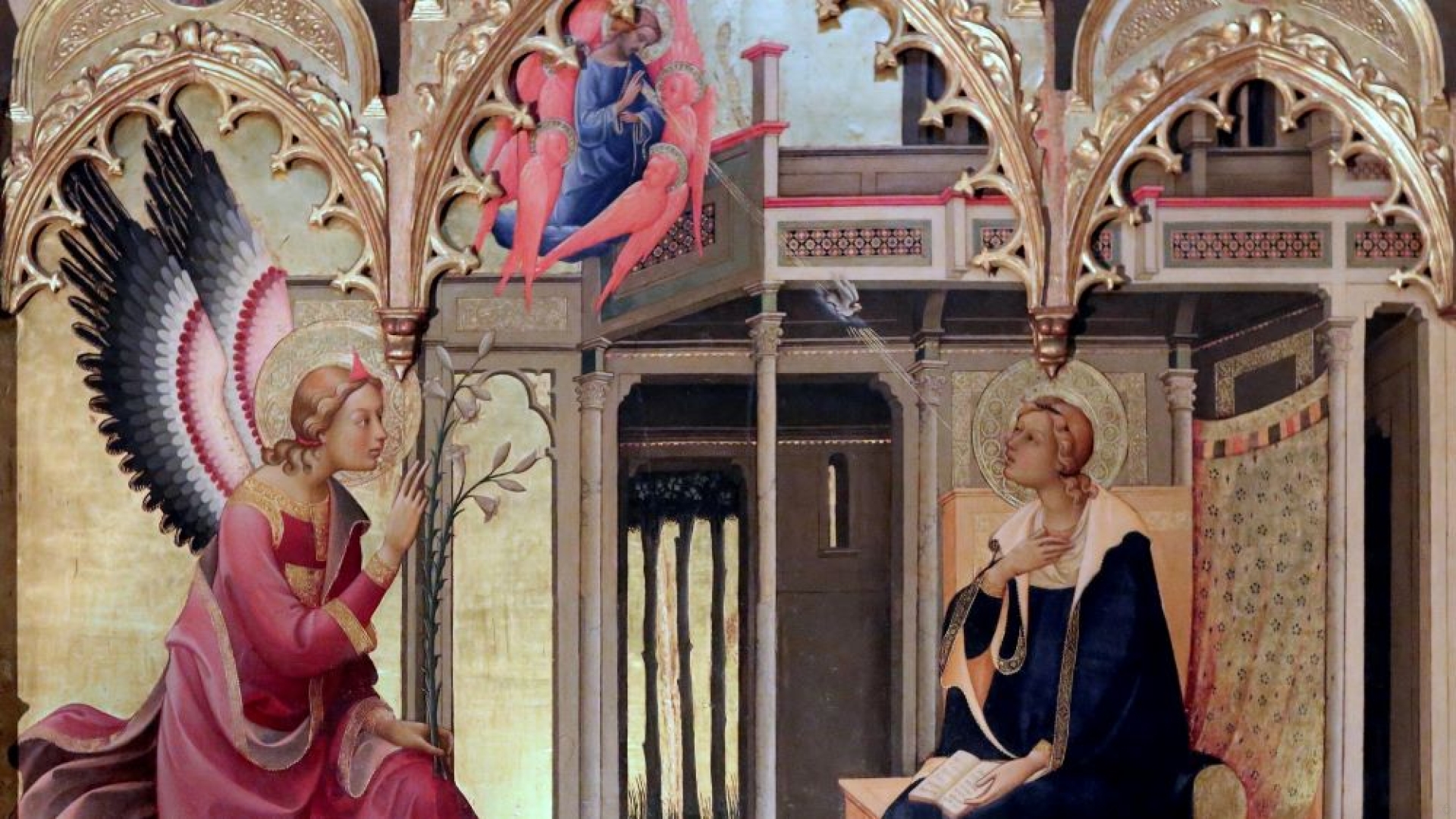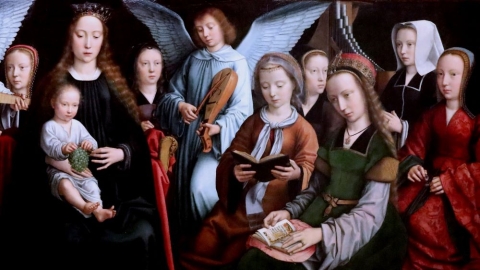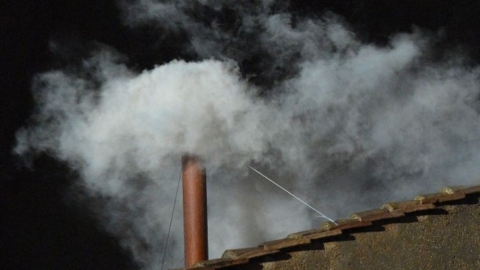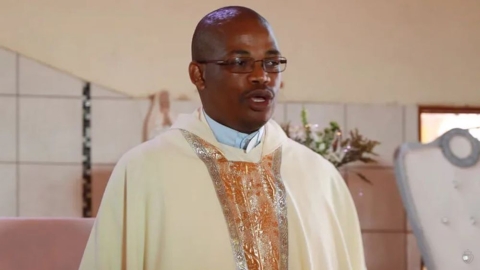St. Sophronius of Jerusalem on the Incarnation

Lorenzo Monaco (1370-1425)
After the Synod of Jerusalem in 634, St. Sophronius, the patriarch of the city, sent a long letter in the form of a profession of faith to Sergius, the patriarch of Constantinople. The authority of this exposition of Catholic belief was great, for it was approved by the Fathers of the Fourth Council of Constantinople. It is one of the greatest pages that have been written in his honor.
Dogmatic Letter of St. Sophronius on the Incarnation
Regarding the Incarnation, I believe that God the Word, the only begotten Son of the Father, before all the ages, was begotten, in the impassibility of the same God and Father.
Taking pity on our fallen nature, in His love for men, in His infinite freedom and by the will of God who begot Him, as well as with the divine consent of the Holy Ghost, without leaving the bosom of His Father, He descended to our lowness.
According to the common will of the Father and the Spirit, and according to His nature and His infinite being, suffering no limit, ignoring our successive displacements, acting by nature in a wholly divine way, He entered into the very dazzling womb of the virginal purity of Mary, the holy and radiant Virgin, full of divine wisdom, and free from all defilement of body, soul, and spirit.
He incarnated, He the incorporeal; He takes our form, He who, according to the divine essence, was devoid of form, as to exterior and appearance. He takes on a body like ours, He, the immaterial, He becomes truly man without ceasing to be recognized as God. We see Him carried in the bosom of His Mother, He who is in the bosom of the Eternal Father. He, the timeless one, receives a beginning in time.
All this, not on a whim, but really and truly annihilating Himself completely, by the will of His Father and His own, assuming all our human substance, taking on a flesh consubstantial with us, a reasonable soul, similar to our souls, a spirit identical to ours. Because that is what man is. And He became truly human through the sublime conception of the Most Holy Virgin.
For He wanted to become man in order to purify like by like, to save brother by brother, to illuminate the identical by the identical. This is why a holy Virgin is chosen. She is sanctified in her soul and in her body, and because she is pure, chaste, and immaculate, she becomes the cooperator of the Incarnation of the Creator.
Prayer of St. Sophronius to the Virgin Mary
Rejoice, full of grace, the Lord is with you. And what can be greater than this joy, O Virgin Mother? What can there be above this grace, which you are the only one to have received as a portion from God? What could be more joyful and more luminous?
The joy that emanates from you is not only granted to men but also to all the powers on High. Everything remains far behind your wonders, everything is below your grace. The most certain privileges are only second rank and possess only a much lesser luster. The Lord is with you.
Who would dare to compete with you on this point? God is born from you. Who then would not give way to you immediately to leave you with joy the primacy and excellence? Also, when I contemplate your superiority over all creatures, I loudly proclaim your praises. Rejoice, full of grace, the Lord is with you. The joy that emanates from you is not only granted to men but also to all the powers above.
Truly you are blessed among all women, because you have transformed Eve’s curse into a blessing; because Adam, who before was cursed, was able to be blessed because of you. Truly you are blessed among all women, because, thanks to you, the blessing of the Father has fallen on men and delivered them from the ancient curse. Truly you are blessed among all women, because, thanks to you, your ancestors are saved, because it is you who will engender the Savior who will procure their salvation.
(Source : Pie Régamey/mariedenazareth.com – FSSPX.Actualités)
Illustration : Flickr / Jean Louis Mazieres (CC BY-NC-SA 2.0)





